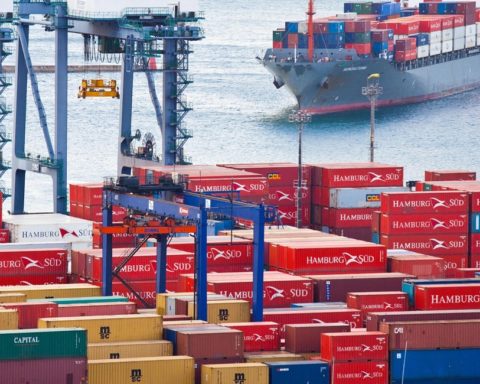Twenty-eight years ago, almost to the day, on 12 March 1989, Tim Berners Lee submitted a proposal to CERN describing what would become the World Wide Web. Today, the loss of control over our personal data, the spread of false news and the lack of regulation around political advertising are, according to the father of the web, the three major threats facing the Internet.
Po celebrate the anniversary of his discovery, Sir Tim Berners Lee wrote a open letter in order to share his concerns with as many people as possible. And Lee is "increasingly concerned" that the web is losing what it was designed to be: "an open platform that would allow everyone, everywhere in the world, to share information, provide opportunities for access and collaboration across geographic and cultural boundaries. According to him, in the last 12 months, three major threats have developed that could jeopardize the original purpose of the web: "to be a tool that serves all humanity".
"We've lost control of our personal data."
The dominant business model on the web today is the exchange of ("free") content for personal data. Most of us agree, by signing long and tedious "terms and conditions of use", to transfer our personal data to a site. The problem is that, now, this personal data is no longer in the hands of an identified site, but resides in what Lee calls "silos of ownership," out of our sight, out of our control. There is no way to escape this mechanism. Our data is slipping through our fingers, and even if we wanted to share only some of it and keep the most personal and intimate information, we can't do so. Most of the Terms and Conditions are written on an "all or nothing" basis.
For the father of the web, this generalized collection of our data by more and more companies has a diabolical consequence. Indeed, governments are particularly fond of this manna of information about their citizens. So, by making agreements or using threats against companies on the web, some states are scrutinising our private lives and our every move online in real time. We already see repressive regimes tracking down bloggers and Internet users, when they don't simply delete them. Tim Berners Lee believes that this trend is becoming more widespread and is even affecting democratic countries that may succumb to the temptation to spy on our actions. As a result, trust in the Internet as a means of free expression is being undermined.
The scourge of false news
The creator of the web reminds us that the web has favoured the development of what is commonly known as "information highways". But today he fears that these highways will become those of disinformation. The question of "fake news" emerged during the US presidential campaign and is growing with the current elections in Europe. For Lee, the perverse mechanism of misinformation comes from the main sources of public information: search engines and social networks. These constantly offer carefully selected content because they are likely to appeal to us. To achieve this, algorithms scrutinize our personal data and our browsing patterns on the Internet to propose to us what we are supposed to be fond of. But the logic of the system quickly goes astray because it encourages us to outbid one another. Information providers favour sensational news, shocking when it is not false news, unfounded rumours. This is how disinformation spreads "too easily" for Lee on the web and diverts him from his primary mission.
This question raised by Tim Berners Lee is serious enough to have already mobilised certain Internet platforms. This is the case of Facebook, which is multiplying its initiatives towards the media by proposing a tool for verifying information or its Journalism Project. The social network also participates in CrossCheck launched in partnership with Google and funds the Decodex of Le Monde newspaper.
Political advertising endangers democracy
The author of the open letter observes that online political advertising has in a few years become a sophisticated industry that endangers democracy. By implementing algorithms that knit the personal data of voters, political messages are increasingly targeted. Tim Berners Lee notes that during the U.S. election, up to 50,000 different variants of political advertising were served on Facebook every day. Many of the messages were false news, unfounded denunciations and other rumours. It is impossible to monitor such a mass of information. As a result, it is the democratic debate that is corrupted because this mechanism allows different and even contradictory messages to be delivered depending on the groups for which they are intended.
Some, and the trend is also growing widely in Europe, some issuers of political news do not hesitate to redirect their readers to fake news sites in order to influence them or discourage them from voting.
Moral Stature
Tim Berners Lee is not just anyone and when he speaks, his speech is listened to. He has an unquestionable moral stature. Also, his warnings must be heard.
The creator of the web calls on Internet users to mobilize to stop the perverse practices that plague the web. He calls for more transparency on the functioning of algorithms and urges the billions of individuals making up the web community to resist the liberticidal practices of certain governments and organizations. It advocates new economic models that are alternatives to advertising, such as micropayment or subscription.
He concludes with a call for the mobilization of Internet players: "We have all participated in building the Web we have today. We now have the power to build the Web we want for everyone. "A call certainly aimed at web actors, big or small, to become aware of how their innovations are used by Internet users. A warning against their perverse effects, which we never see in the hushed secrecy of the labs when new ideas are born. Will this call be heard? It is to be hoped so.













